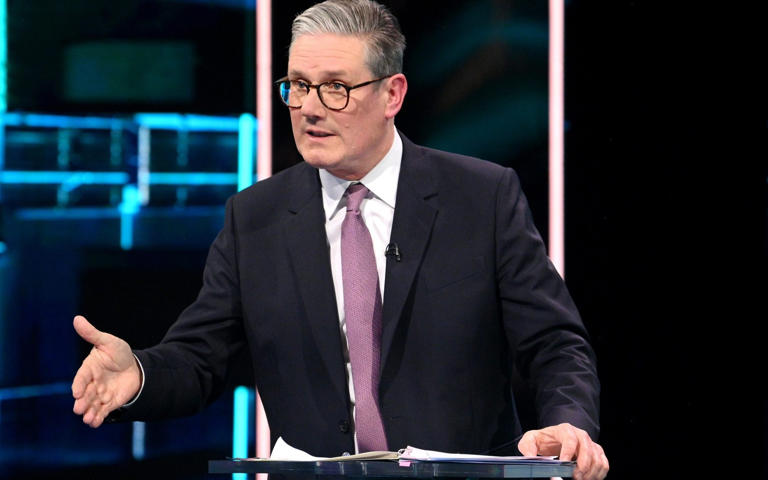Investor skepticism regarding Sir Keir Starmer’s pledge not to increase income and corporation taxes has become apparent in a recent poll conducted among 70 City institutions, representing a diverse range of financial entities such as companies, pension funds, insurance businesses, and hedge funds. The findings of this poll reveal a prevailing doubt among investors regarding the feasibility of Labour’s commitment to tax freezes.
Nomura, an investment bank, spearheaded the survey, and its results painted a picture of uncertainty among respondents. Around six in ten of those surveyed expressed the belief that Sir Keir Starmer’s Labour Party would opt to raise corporation and income taxes should they assume power. This sentiment suggests a prevailing skepticism among investors regarding Labour’s ability to uphold its tax promises, particularly in the face of complex fiscal challenges.
George Moran, a research analyst at Nomura, emphasized the formidable fiscal obstacles that a Labour government would confront, especially without significant changes in interest rates or economic growth. This acknowledgment underscores the pragmatic view held by many investors that Labour may encounter difficulties in adhering strictly to its tax commitments.
The poll results have further intensified the scrutiny on Sir Keir Starmer and shadow chancellor Rachel Reeves, who must navigate questions surrounding their tax policies. Labour has been unequivocal in its promise not to increase headline rates of income tax, VAT, or National Insurance for five years if elected. Additionally, they have pledged not to raise corporation tax above its current rate of 25%, thereby projecting an image of stability and consistency in tax policy.
However, these assurances have not assuaged concerns within the Conservative Party, led by Chancellor Rishi Sunak, who has repeatedly accused Labour of covertly planning a £2,000 increase in household taxes. This accusation, vehemently denied by Sir Keir Starmer, underscores the broader political debate around Labour’s fiscal agenda and the implications for taxpayers.
Hendrik Du Toit, CEO of City fund manager Ninety One, highlighted the broader fiscal challenges facing governments globally and suggested that tax rates may inevitably rise irrespective of election promises. This perspective reflects a pragmatic acknowledgment within the financial sector that tax policy may need to adapt to address evolving fiscal dynamics.
Despite doubts about Labour’s tax pledges, the majority of institutions surveyed believe that a Labour government is highly probable, with three-quarters predicting a Labour majority of 75 seats or more. This sentiment underscores the shifting political landscape and the perceived electoral momentum behind the Labour Party.
Labour’s efforts to cultivate support within the City underscore its recognition of the finance industry’s significance in shaping economic policy and public perception. By engaging with financial institutions, Labour aims to bolster its economic credibility, attract donations, and enhance its electoral prospects. However, the prevailing skepticism among investors highlights the challenges facing Labour in winning over key stakeholders and maintaining trust in its fiscal agenda.
